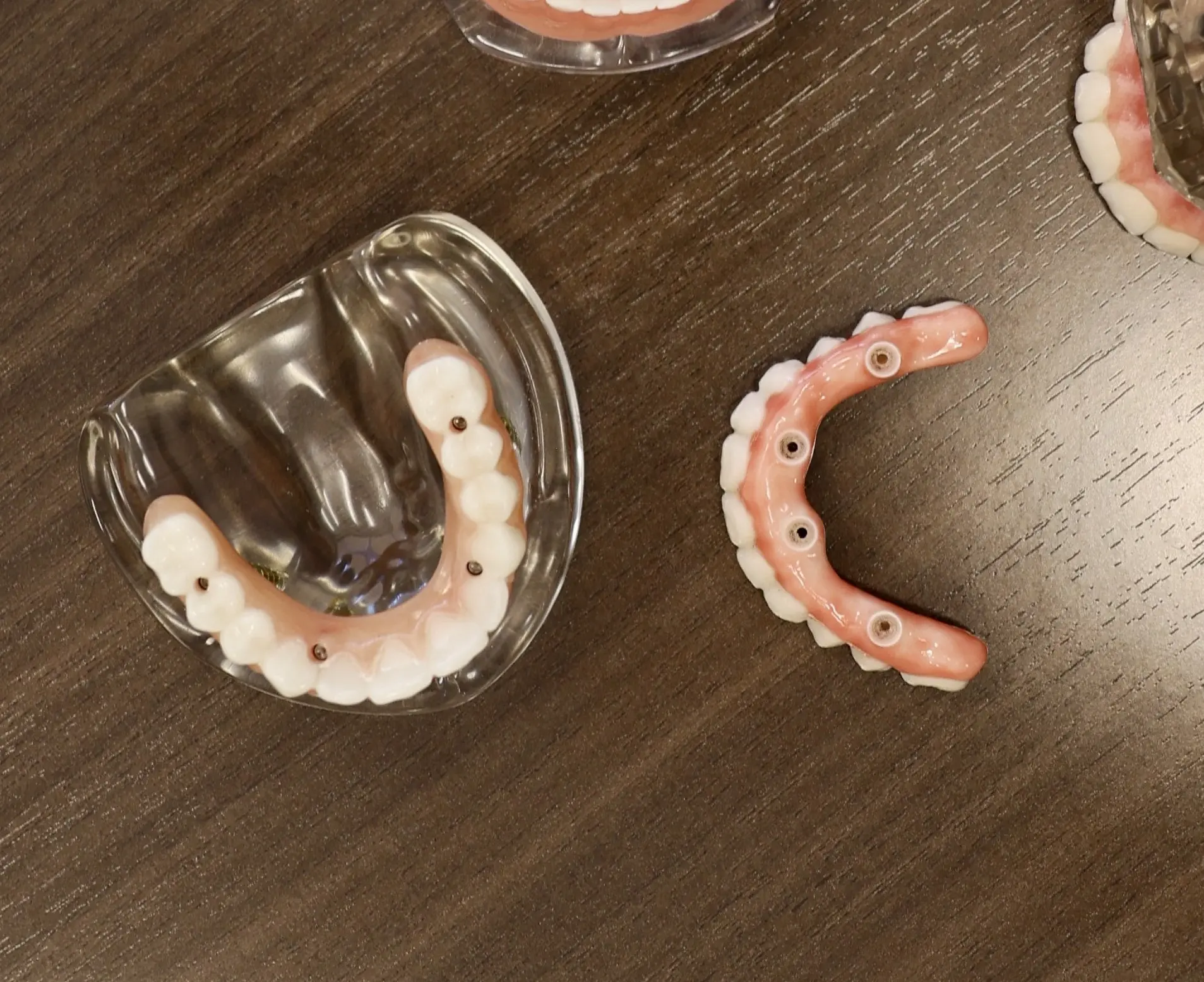Dental implants provide a safe, reliable, and effective solution for replacing missing teeth. These implants are surgically placed into the jawbone, where they function as roots for the new teeth.
Choosing the right size for your dental implant is vital for its success. If the implant is too small, it might not adequately support the new tooth. On the other hand, if the implant is too large, it could damage surrounding teeth and gums. You do not have to worry; we will guide you in selecting the appropriate size and placement to ensure the best results.
We understand the importance of getting your smile back with implants perfectly suited to your needs. Let’s help you understand how to choose the right dental implant size for optimal oral health and lasting satisfaction.
Proper Implant Sizing: Why it’s Important
Choosing the right size for your dental implant is essential for several reasons. Proper sizing ensures the safety and longevity of your dental implant. If the implant is too small, it may not provide enough support for the replacement tooth, leading to movement and instability. If it’s too large, it could cause damage to the surrounding teeth, gums, or jawbone.
Incorrect sizing can also lead to serious complications, such as nerve damage, which can cause pain or numbness. Additionally, an improperly sized implant increases the risk of implant failure, meaning it may not bond correctly with your jawbone, leading to the need for removal and replacement.
Custom-sized implants offer many benefits. They provide a better fit, which leads to improved stability and strength. A well-fitted implant reduces the risk of complications, ensuring a smoother and more successful treatment outcome.
We use advanced imaging and planning techniques at NuSet Dental Implants and Oral Surgery to get an accurate dental implant size. This helps us determine the best size for your implant, enhancing both the function and appearance of your new tooth.
Factors Affecting Implant Size Selection
Choosing the right dental implant size is important as this choice affects the success of the procedure. Several factors can influence this decision, including bone density and quality, available space in the jawbone, the patient’s health status, and the desired aesthetic outcome.
Let’s discuss these factors in detail:
Bone density and quality
Your jawbone’s density and quality play a crucial role in determining the implant size. A dense and healthy jawbone can support a larger implant, providing better stability. If your bone is less dense, a smaller implant might be necessary to avoid overloading the bone.
Available space in the jawbone
The space available in your jawbone is another key factor. We will measure the width and height of your jawbone to determine the appropriate implant size. Adequate space ensures that the implant fits securely without affecting adjacent teeth or structures.
Patient’s health status
Your overall health can impact the implant size selection. Conditions like diabetes or osteoporosis can influence healing and bone integration. These conditions may require adjustments to the implant size to ensure better stability and support.
Desired aesthetic outcome
The appearance of your dental restoration also impacts the implant size. The goal is to match the implant and replacement tooth with the surrounding natural teeth for a seamless look. We will consider the size and shape of your existing teeth to ensure a natural and attractive result.
These factors contribute to a personalized treatment plan that meets your unique needs. Considering all these elements, we can select the optimal implant size to provide the best possible outcome for your dental implant treatment.
What are the Different Types of Implant Sizes
Dental implants come in various sizes: micro-implants, standard-sized implants, and wide-platform implants.
The diameter of a dental implant is measured in millimeters (mm) and can range from 2mm to 6mm. The length of a dental implant, also measured in millimeters, is classified as short (6-9mm), medium (10-12mm), or long (13-18mm).
The length and diameter of the implant depend on the number of teeth being replaced and the strength of your jawbone.
Micro-implants or Mini Dental Implants
Mini dental implants are the smallest type of dental implants. They are used in areas with limited space or where the bone is narrow. These implants are less invasive and can be a good option for replacing small teeth or for patients with minimal bone density.
Standard-sized implants
Standard-sized implants are the most common type of dental implants. They are used for most dental implant procedures and come in various diameters and lengths to fit different areas of the mouth. These implants provide a strong and stable foundation for most replacement teeth.
Wide-platform implants
Wide-platform implants are larger in diameter and are used in areas where more support is needed, such as the back of the mouth where the molars are located. These implants provide extra stability and are ideal for patients with enough jawbone to support a wider implant.
Hybrid implants
Hybrid implants combine features of different implant types to suit specific needs. For example, a hybrid implant might have a wider diameter but a shorter length to fit into a space with limited height but sufficient width. These implants are customized to provide the best fit and support for unique situations.
Understanding the different types of implant sizes can help you better appreciate the options available to you. We will help you choose the best size based on your individual needs and the specific conditions of your mouth, ensuring a successful and lasting dental implant treatment.
Let’s Help You Get the Right Fit for Your Dental Implants
Choosing the right size for your dental implants is essential for a successful and long-lasting result. Proper sizing affects the stability, functionality, and appearance of your new teeth, as well as the overall success of the implant procedure.
Consulting a dental professional is vital for accurate implant sizing. At NuSet Dental Implants and Oral Surgery, we use advanced imaging technology to assess your unique situation and create a customized treatment plan. This professional guidance minimizes risks and ensures a better outcome.
Contact us now for high-quality dental implants and expert guidance. Our team is dedicated to providing personalized care and ensuring your implants fit your oral health needs perfectly.
Frequently Asked Questions
What is the best dental implant size?
The best dental implant size depends on your individual needs and conditions. We will consider factors like bone density, available space, and the location of the implant to choose the ideal size for you. The size chosen must provide the best stability and support for your new tooth.
How do I determine dental implant size?
Determining the right dental implant size involves a thorough assessment by your dentist. We will consider factors such as the density and quality of your jawbone, the available space, your overall health, and the desired aesthetic outcome. Advanced imaging technology, like CT scans, helps in getting accurate measurements and planning the implant placement.
What is the ideal length of a dental implant?
The ideal length of a dental implant varies based on each patient’s specific needs. Generally, dental implants can range from 8mm to 30mm in length. Your dentist will determine the appropriate length based on the height of your jawbone and the location where the implant will be placed.
What is a full-size dental implant?
A full-size dental implant refers to a standard-sized implant, which typically ranges in diameter from 3.5mm to 6mm. These implants are used for most dental implant procedures and provide a strong and stable foundation for new replacement teeth. Full-size implants are suitable for replacing larger teeth or in areas with sufficient bone density and space.





